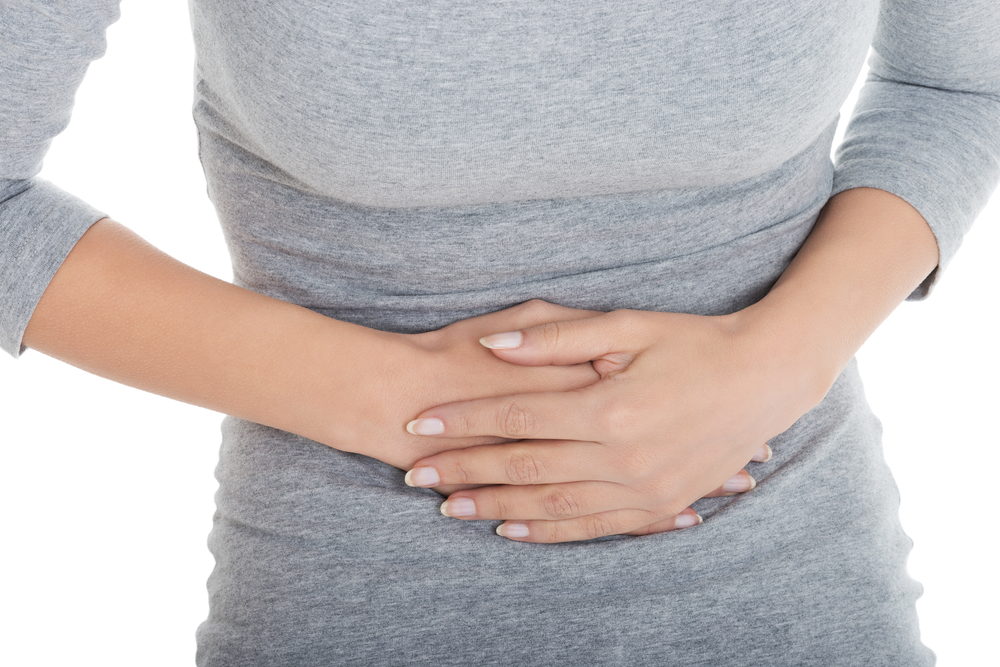Endometriosis- symptoms, causes & management
Endometriosis is a very common condition- affecting around 1 in 10 women, mainly between the ages of 25 and 40. It can be hard to diagnose as it doesn’t typically show up on blood tests or ultrasound scans. As well as that, symptoms can vary between women- it can be a relatively silent condition, or it can cause severe pelvic pain, fertility problems and other complications. It may also be incorrectly diagnosed as something else, such as irritable bowel syndrome.
What is Endometriosis?
If a woman has Endometriosis, the kind of tissue that lines the uterus (womb) also starts to grow outside the uterus, in places where it shouldn’t normally be- most commonly on and around the ovaries, the fallopian tubes, and occasionally the bowel or other locations. When a woman gets her period, this tissue tends to bleed, causing inflammation, pain and sometimes scarring.
Why does Endometriosis happen?
It’s not entirely clear why Endometriosis occurs. One common theory is that, rather than passing out through the vagina, some menstrual tissue passes up through the uterus, and exits via the fallopian tubes, into the pelvis. It may then implant there, and bleed each month when a woman has her period.
- There does appear to be a strong genetic link- women with a close relative who has Endometriosis are up to 10 times more likely to get it themselves. It may also be linked to the following:
- having first pregnancy at an older age
- having a first menstrual period before11 years of age
- a tendency to heavy periods or periods lasting longer than five days
- having short menstrual cycles less than 28 days
Risk of endometriosis may be reduced by the following:
- young age at first pregnancy
- having more children– this may be due to the hormone progesterone during pregnancy
- breastfeeding for longer periods
What are the symptoms of Endometriosis?
Endometriosis may be a silent condition (in around 25% of cases), but can also lead to the following symptoms:
- pelvic pain
- painful periods- this tends to worsen over time
- pain during sex
- pain when passing urine or bowel motions (often worse during a period)
- constipation and/or diarrhoea
- lower back ache
- tiredness
- bloating
- endometriomas (a type of ovarian cyst)
- infertility- this is thought to be caused by scarring of the fallopian tubes, though there may be other factors
All of these symptoms can be caused by other conditions too, for example, pelvic infections or irritable bowel syndrome- so it’s important to get assessed by a doctor.
What is the test for Endometriosis?
You or your doctor may suspect Endometriosis on the basis of your symptoms.
A pelvic ultrasound may show some signs if there is endometriosis on the ovaries, but the only definitive test is to have keyhole surgery (a laparoscopy). A laparoscopy is when the doctor looks directly into the pelvis by passing a small camera through the wall of your tummy. Samples (biopsies) may be taken to confirm the diagnosis.
Does Endometriosis cause infertility?
There are many reasons a couple may find it hard to become pregnant, but Endometriosis is one of the possible issues. This may be due to scar tissue in the fallopian tubes, though there may be other factors. It is thought that in Endometriosis the woman’s egg may be less likely to fertilise, or there may be substances produced by the woman’s body that stop sperm functioning normally.
What is the treatment for Endometriosis?
This depends on the symptoms a woman has. If there are no symptoms, or only mild ones, then no treatment may be required.
- Pain Relief- Painkillers or Anti-inflammatories may help.
- Hormonal treatment – hormonal medication such as the oral contraceptive pill may also help symptoms and reduce painful periods. Further hormonal treatments may be recommended by a gynaecologist
- Surgery- Laser or diathermy, may be performed via keyhole surgery (laparoscopy)- in these procedures, the endometriosis is “burnt” away. In more severe cases the option of surgical removal of the uterus (hysterectomy) and/or ovaries (oophorectomy) may be considered. However, this is a major operation, and is only considered in bad cases where all other options have failed. And sometimes, unfortunately, a woman will continue to have symptoms following surgery.
If you have further questions about Endometriosis, speak to your doctor.
ACL injuries & tears
ACL injuries & tears The knee has two ligaments inside the joint, that stabilise it when we are moving forwards or backwards. These are called the anterior and posterior cruciate ligaments. The anterior cruciate [...]
What is a fractured penis?
What is a fractured penis? Although the penis doesn’t have a bone in it, it can be fractured! A fractured penis occurs when the spongy tissue that swells during [...]
Could your home be causing asthma and allergies?
Could your home be causing your Asthma? Overview Our homes are not just a roof over our heads- they play a key role in our health, particularly when it [...]
How to fix an ingrown toenail
How to get rid of an ingrown toenail What is an ingrown toenail? Ingrown toenail is an extremely common condition which occurs when the inner or outer side of [...]
On a vegan diet?- some important things you should know
Vegan diet- a beginner's guide What is a vegan diet? A vegan diet, also known as plant-based, describes one that avoids any animal products. There are many subtypes of [...]
How to get rid of Jock Itch
How to get rid of Jock Itch What is Jock Itch? Jock Itch is a common name for the medical condition also known as "Tinea Cruris". Jock Itch is [...]










